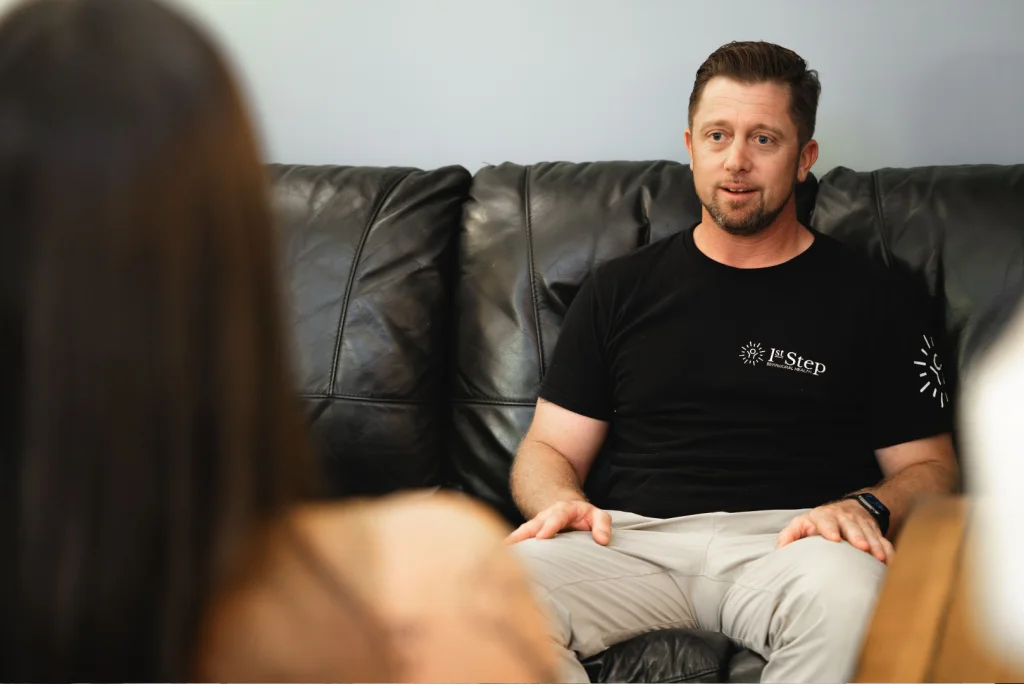Co-Occurring Disorders Treatment
By treating the root cause of addiction, we help our clients ensure lasting sobriety.


What are Co-Occurring Disorders?
When someone is struggling with a substance use disorder along with a mental health disorder, they are said to have a co-occurring disorder or a dual diagnosis. Co-occurring disorders are extremely common issues, affecting more than 7.9 million adults in the United States.
When an addiction and mental health issue are present at the same time, the two conditions become intertwined, feeding off each other and exacerbating the symptoms of one another. If one condition is treated but the other is left undiagnosed, a relapse in the other condition is likely to occur. As a result, it is essential to treat co-occurring disorders simultaneously, addressing their interconnected nature and the impact they have on a person’s recovery.
Sometimes, it can be difficult to identify a co-occurring disorder because mental health issues share many of the same symptoms as addiction. Overlapping symptoms make diagnosis difficult, but they make it easy to target both conditions through treatment.
What Comes First: Addiction or Mental Illness?
In many cases, people begin abusing drugs and alcohol because they are trying to cope with the symptoms of a mental illness, like anxiety or depression. But in other cases, the substance use disorder comes first, and results in mental and emotional changes that lead to mental health conditions.
It isn’t always easy to identify whether mental illness or addiction came first–just that both conditions need to be addressed for successful treatment. If one condition is treated before the other, it can reduce the effectiveness of overall recovery because there are still underlying issues that have not been addressed. After all, mental health plays an important role in reducing the risk of relapse and being able to focus on long-term recovery, and sobriety can have a major impact on better mental health.

Understanding Alcoholism and Mental Health
Alcohol is one of the most commonly misused and addictive substances available. Some people overlook the dangers because it is legal for someone aged 21 or older to drink. However, that does not make it safe and alcoholism is a serious problem. Alcohol can put a person at a greater risk of developing depression, anxiety, and other mental health disorders. It changes the way the brain’s reward system functions and it can be more difficult for people to experience pleasure from everyday activities.
At the same time, someone already experiencing these mental health problems may turn to alcohol as a way of trying to cope. In turn, this can make their symptoms more severe and difficult to deal with. Combining alcoholism and mental health disorder treatment can help people turn their lives around and get on the road to recovery.
Understanding Drug Addiction and Mental Health
Both illegal drugs such as cocaine, heroin, and methamphetamines, and prescription medications such as opioids and benzodiazepines can be highly addictive. These drugs may be used to reduce pain, curb insomnia, decrease anxiety, or increase energy, but they can also take a negative toll on physical and mental health. The same symptoms they are being used to treat, they can actually make it worse.
Drug addiction and mental health disorder treatments aim to help people cope with the challenges they face through healthier means that do not involve substance misuse. Drug addiction can be a slippery slope, but there is help available.

Types of Mental Health Conditions that Co-Occur With Addiction
There are many mental health conditions that may exist alongside drug and alcohol addiction. People with co-occurring disorders may also have more than one mental health condition. Common mental conditions that co-occur with addiction include:
- Depression
- Anxiety
- Schizophrenia
- Bipolar disorder
- Personality disorders
- Post-traumatic stress disorder
Common Symptoms of Co-Occurring Disorders
The symptoms of co-occurring disorders can vary greatly depending on the condition. Someone who is experiencing depression and addiction may not necessarily experience the same symptoms as someone who has schizophrenia and addiction.Some common symptoms of co-occurring disorders include:
- Changes in behavior
- Confusion or difficulty concentrating
- Becoming withdrawn
- Uncontrolled substance use
- Building a tolerance to substance use
- Experiencing withdrawal symptoms when trying to control use
- Participating in risky behaviors
- Extreme mood changes
- Acting out of the ordinary to accommodate substance use
- Suicidal thoughts
Remember that these symptoms can vary from person to person, so if there is a concern, seek help immediately. Be alert for red flags and warning signs that something is not right, especially if it is out of character for the person. They may have become skilled at denying or hiding their co-occurring disorders, but eventually, symptoms will emerge and become more noticeable.

Dual Diagnosis Treatment for Co-Occurring Disorders
1st Step Behavioral Health provides clients with comprehensive dual diagnosis treatment and therapies to support them in recovery. Everyone who struggles with co-occurring disorders is unique and can benefit from an individually-tailored treatment plan designed to meet their needs. As a result, comprehensive assessments are generally conducted to evaluate substance abuse, mental health, and the impact of each on the person’s well-being, providing our clinical team with the information they need to craft a custom treatment plan for you.
Throughout treatment, several levels of support are provided as patients progress in their recovery and transition back into the community.
Some of our most popular dual diagnosis treatment programs are:

Depression and Addiction Treatment
Depression is a common co-occurring disorder seen with addiction. Drugs and alcohol change the way the brain processes information – especially the brain’s reward system and how people experience pleasure. A person may develop depression following substance use, or they may turn to drugs or alcohol as a way of trying to cope with symptoms of depression.
Depression and addiction are usually treated using lifestyle changes, antidepressant medications, and behavioral therapy. With the right treatment and support, anyone can get sober and beat their depression.
Anxiety Disorders and Addiction Treatment
Similar to depression, anxiety disorders are also fairly common with addiction. People may use drugs or alcohol to feel more relaxed in anxiety-inducing situations. Still, these same substances can also exacerbate the symptoms of anxiety and make the person feel even worse.
As part of a comprehensive addiction treatment program, clients can learn to manage their anxiety in healthier ways. With behavioral therapy, peer support, and a substance-free life, individuals can get their anxiety under control.
Schizophrenia and Addiction Treatment
When someone experiences symptoms of schizophrenia, they may experience hallucinations or delusions, make poor decisions, and have trouble relating to others. These symptoms may become more evident with substance use and some people develop an addiction from trying to self-medicate to overcome these challenges. Schizophrenia often makes everyday activities more difficult and the addition of substance use can make things worse.
Schizophrenia and addiction are typically treated with a combination of mental health/psychiatric medications and extensive therapy sessions.
Personality Disorders and Addiction Treatment
Addiction can also influence mood swings and personality, but then when combined with personality disorders, these changes can be even more difficult to cope with. The effects of drugs and alcohol can increase impulsiveness, risky decision-making, and the inability to properly control one’s emotions.
Dual diagnosis addiction treatment addresses the impact of personality disorders and substance use on one another so individuals can be empowered to live fulfilling and balanced lives.
Find Treatment for Co-Occurring Disorders Today
Despite the severity or complexity of co-occurring disorders, there is help available and recovery is possible. With the right co-occurring disorder treatment program and mental health support, people can regain control of their lives and develop a healthier lifestyle. 1st Step Behavioral Health can provide you or a loved one with the comprehensive care you need to get on the road to recovery and overcome co-occurring disorders. Contact us today by calling or texting (855) 425-4846!
